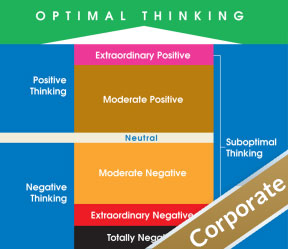close











 Elon Musk, CEO and product architect of Tesla Motors, Inc. is a renowned disruptive innovator. An engineer, Musk pioneers new frontiers in high-risk, high-barrier-to-entry business ventures including SpaceX, SolarCity and the Hyperloop. He recently surpassed Warren Buffett as the seventh richest person in the world.
Elon Musk, CEO and product architect of Tesla Motors, Inc. is a renowned disruptive innovator. An engineer, Musk pioneers new frontiers in high-risk, high-barrier-to-entry business ventures including SpaceX, SolarCity and the Hyperloop. He recently surpassed Warren Buffett as the seventh richest person in the world.
However, Musk’s erratic behavior has dismayed Tesla’s shareholders. He defied an order by local health authorities prohibiting the manufacture and assembly of non-essential goods in order to reduce the spread of the coronavirus. During a Tesla earnings call, Musk labeled the California shelter-in-place orders as “fascist”. He tweeted that Tesla’s stock price was too high, prompting an immediate price drop even though such comments could be a violation of his agreement with the SEC to refrain from tweeting about his businesses.
He also tweeted “FREE AMERICA NOW” about closing businesses during the coronavirus pandemic.
Previously, Musk accused a cave rescuer of moving to Thailand to marry a child and being a “child rapist”. While drinking whisky and smoking a marijuana joint, he participated in a podcast interview about Tesla, artificial intelligence and transportation. He announced that he had secured funding for a go-private takeover of his company and then retracted the statement 17 days later.
So how does he think when faced with probing investment analysts during earnings conference calls? I analyzed the thinking he demonstrated during Tesla’s 2013, 2014, and 2015 first quarter conference calls.
While combing through the text, I was stunned by Musk’s lack of coherence. I wondered about his stress level. Although many of his statements were disjointed and incomprehensible, I did my best to rate the contents based on my Hierarchy of Thinking Styles model.
Having interpreted thousands of Optimal Thinking 360 Assessment reports, I expected Musk’s thinking profile to reveal a combination of Optimal Thinking and extraordinary positive thinking, with a small percentage of the other thinking styles. I also expected Musk to clearly articulate actual results compared to desired results. But, I was wrong.

This assessment describes how Elon Musk thinks in this specific situation. Surprisingly, Musk presents himself as a moderate thinker—more positive than negative—when he discusses Tesla’s performance and expectations during these calls. He often uses words like “good”, “positive”, “hedging”, and “okay”. He also uses phrases like “cautiously optimistic”, “good idea”, “quite significant”, “fairly small”, “not so much”, and “moderate effect”.
Musk employs moderate positive thinking to display reasonable confidence and self-assurance when discussing market realities, particularly during the 2013 and 2015 calls. He focuses on how things can be done and how to make them happen. In 2014, the combination of extraordinary thinking and Optimal Thinking starts to eclipse his moderate approach, in keeping with his persona as an extraordinarily innovative engineer.
As a rule, moderate thinkers are motivated by acceptance from others. In these challenging situations, it appears that Musk chooses to fit in with the mainstream. While his vision is extraordinary and he expresses significant optimism, he provides conservative commentary on delivery and avoids going out on a limb.
By choosing the best option in any given situation, Optimal Thinkers eliminate the “should haves” and “could haves” from processes and outcomes. Additionally, when the cost is high, optimism is the wrong strategy. Optimal Thinkers face the brutal facts and take the best actions to achieve the best solutions.
Musk uses Optimal Thinking to articulate his commitment to optimization.
we should just try to produce cars in the right way for the various markets.
He deploys Optimal Thinking when discussing the seats in the Model X.
They are the nicest second row seats you’ve ever seen in any car ever.
He also uses Optimal Thinking to pursue his optimum vision while embracing negativity.
We’re slowing down U.S. deliveries and trying to make people as happy as possible, given the production constraints.
If you are a CEO or senior executive who is facing an immediate challenge, I would like to prove that Optimal Thinking will give you the best chance of achieving everything you want. You will experience consistent peak performance to best resolve your greatest challenge.
The transcripts used in this article are © SeekingAlpha.com. 2013, 2014, 2015.
Read my analysis of “How Jeff Weiner Thinks” (LinkedIn CEO). These posts are part of the “How CEO’s Think™” Optimal Thinking article series.
If you would like to nominate a well-known leader for a thinking analysis, feel free to include them in your comments below.
3 Responses to “How Elon Musk Thinks”
Fascinating. I learned some valuable info here. Would you consider analyzing Richard Branson’s thinking?
Very interesting take on Elon Musk’s thinking process. He seems to want to include moderation into his high risk innovative style when uncertain. I have several employees with this high risk-moderate risk thinking profile. I agree that optimal thinking is critical to get past the to and fro and get resolution. Will look forward to your next post.
Your analysis is provocative and meaningful. A new way to understand this genius, when he is challenged (although respectfully). Musk has already made his mark on the world. His business initiatives delight those of us who don’t have the guts, acumen, or energy to make this kind of difference. While we are in awe of his daring, you make a good point that he treads lightly during investor conference calls. This says something about his street smarts. Thanks for this great post. I would love to see your analysis of Mark Zuckerberg’s and Howard Schultz’s thinking.
Leave a Reply